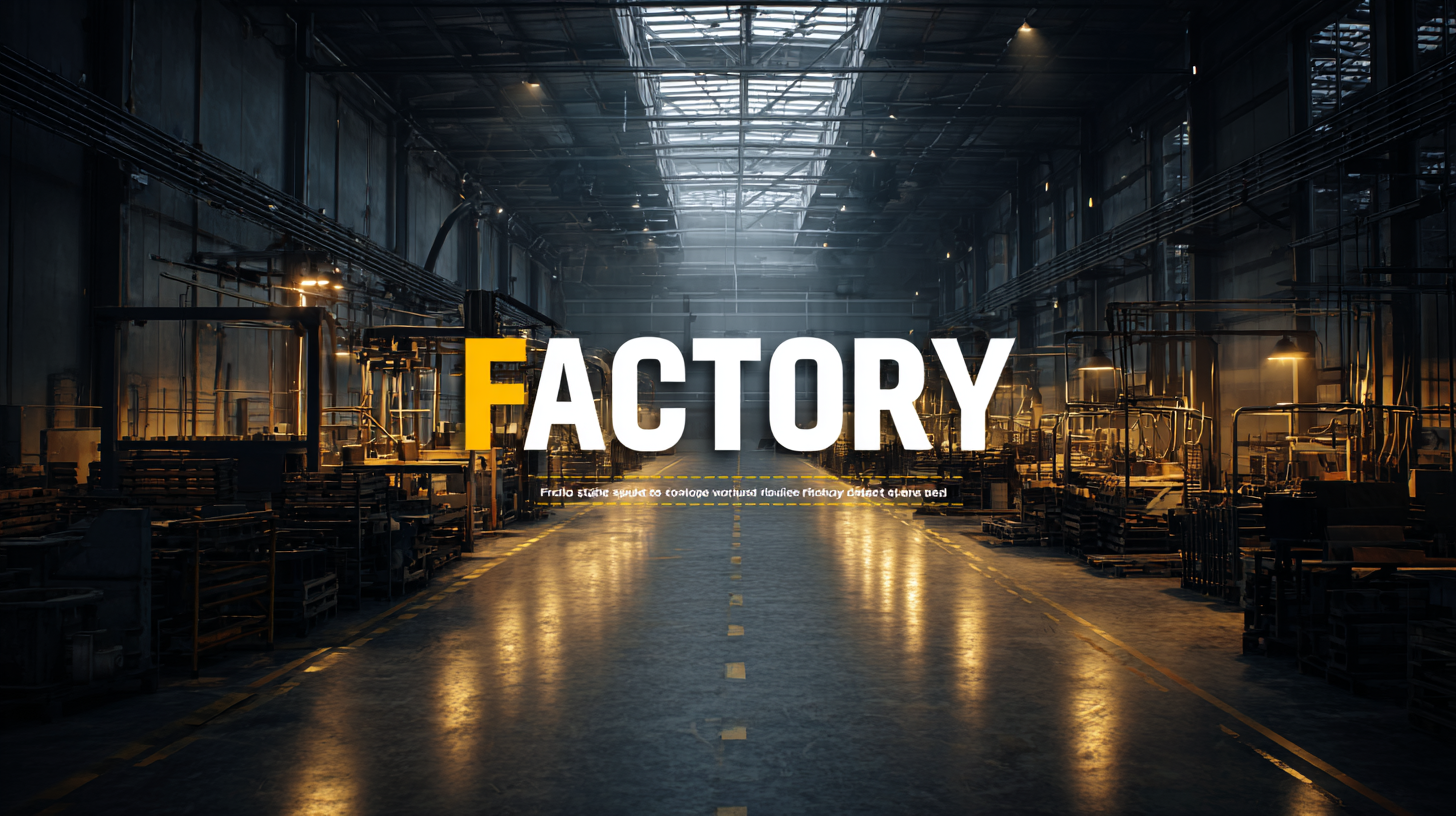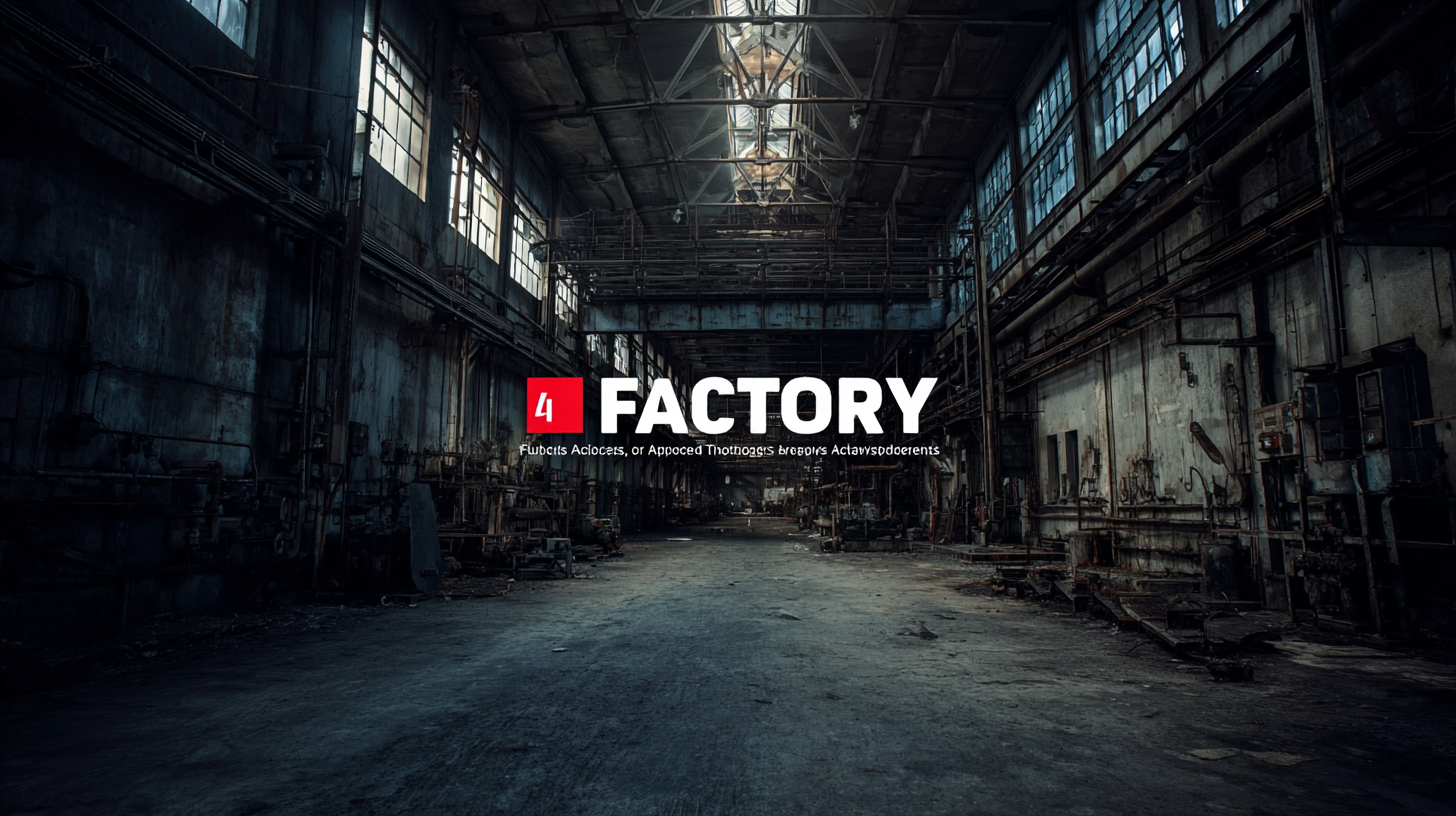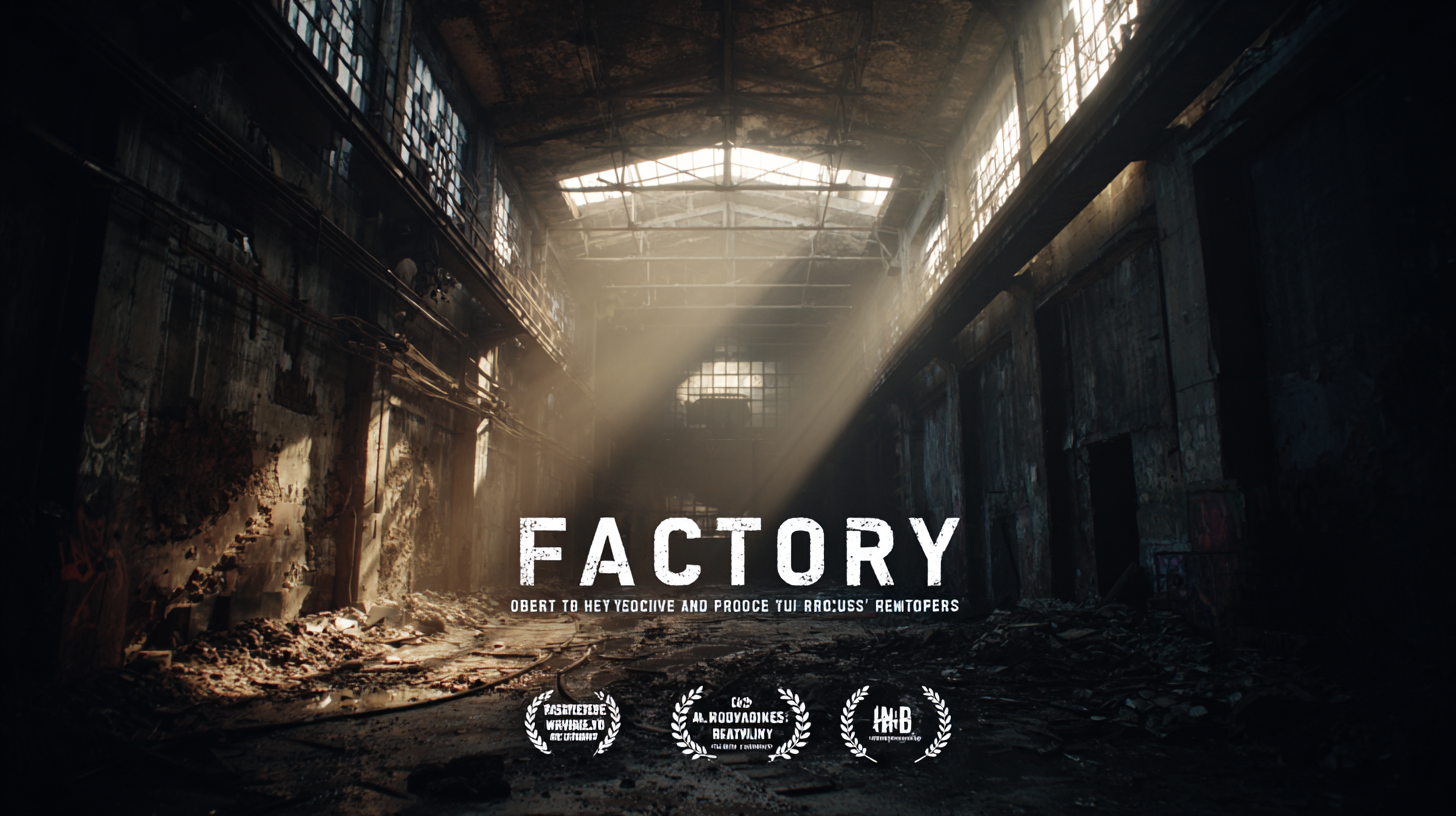
Revolutionary Approaches for Choosing the Best Factory for Your Business Needs
In today's rapidly evolving industrial landscape, the selection of the most suitable factory is a critical decision that can significantly impact a business's operational efficiency and competitiveness. According to a report by McKinsey & Company, the manufacturing sector is poised for substantial transformation with the increasing adoption of Industry 4.0 technologies, which are expected to boost productivity by 20-30% by 2025. As businesses strive to align with these technological advancements, understanding the key considerations in choosing a factory becomes paramount. This blog will explore revolutionary approaches that leverage the latest industry trends and data, empowering organizations to make informed decisions that cater to their unique needs. By integrating top strategies and insights from recent studies, we aim to guide you in identifying a factory that not only meets your current requirements but also positions your business for future growth and success.

Understanding the Key Characteristics of Different Product Types
When selecting a factory for your business needs, it's essential to understand the key characteristics that differentiate various product types. Each factory specializes in manufacturing distinct categories of products, which influence their production processes, machinery, and labor force. For instance, a factory focused on automotive parts may prioritize precision engineering and adhere to stringent safety regulations. In contrast, a facility producing textiles might emphasize speed and scalability to keep pace with fashion trends. Understanding these nuances helps businesses align their requirements with the capabilities of the factory.
Moreover, product complexity also plays a critical role in factory selection. High-tech electronics require advanced manufacturing techniques and skilled labor, as well as a robust quality control system to ensure reliability. On the other hand, simpler products may allow for cost-effective production methods that prioritize volume over complexity. Businesses should assess their specific product needs, including design intricacies and material requirements, to choose a factory that not only meets their quality expectations but also provides the necessary technical expertise. By carefully considering these characteristics, companies can establish partnerships that support their operational goals and enhance overall efficiency.
Revolutionary Approaches for Choosing the Best Factory for Your Business Needs
| Factory Type | Key Characteristics | Best For | Production Capacity | Lead Time |
|---|---|---|---|---|
| Textile Factory | Specializes in fabric production, offers various materials | Apparel and fashion brands | 100,000 units/month | 4-6 weeks |
| Electronics Factory | High-tech machinery, skilled labor for assembly | Consumer electronics manufacturers | 50,000 units/month | 6-10 weeks |
| Food Processing Plant | Focus on hygiene and quality, certifications | Food and beverage companies | 200,000 units/month | 2-4 weeks |
| Furniture Factory | Custom designs, various wood types available | Home decor and furniture brands | 10,000 units/month | 6-8 weeks |
| Plastic Injection Molding | Precision manufacturing, large volume production | Consumer goods and automotive parts | 150,000 units/month | 5-7 weeks |
Evaluating Factory Capabilities Based on Product Specifications
Choosing the right factory is crucial for meeting your business needs and ensuring product quality. When evaluating factory capabilities, it’s essential to align them with your product specifications. Start by scrutinizing the factory's technical capabilities and machinery. Determine whether they are equipped to handle the specific requirements of your product, such as material type, production volume, and processing techniques.
**Tip:** Request samples of previous work or prototypes to gauge the factory’s quality standard. This will help you understand their expertise and adaptability to your specific product’s needs.
Additionally, assess the factory's workforce and training programs. A skilled team is vital for maintaining consistency and quality throughout the manufacturing process. A factory that invests in ongoing training is more likely to uphold high standards and innovate when necessary.
**Tip:** Inquire about the factory’s quality control protocols and certifications. Reliable factories often have robust systems in place to monitor and guarantee product quality from start to finish.
Evaluating Factory Capabilities Based on Product Specifications
This chart illustrates the evaluation of factory capabilities measured against various product specifications. The bars represent the performance rating (out of 10) of different factories in areas critical for product manufacturing.
Exploring Alternative Manufacturing Approaches for Diverse Products
When it comes to selecting the best factory for your business needs, exploring alternative manufacturing approaches can open up diverse possibilities for your products. Traditional methods can often be limiting in terms of scalability and customization. By evaluating new techniques such as 3D printing, modular manufacturing, or on-demand production, businesses can find a solution that aligns better with their specific requirements and market demands.
Tip: Consider engaging with manufacturers that specialize in innovative approaches tailored to your industry. They may offer insights into new technologies and practices that can enhance your production efficiency and reduce costs.
Incorporating sustainable practices into your manufacturing selections can also differentiate your brand in a competitive marketplace. Eco-friendly options, like using renewable energy sources or biodegradable materials, not only appeal to environmentally-conscious consumers but can also improve your overall brand image.
Tip: Analyze your supply chain for opportunities to integrate sustainable solutions. Partnering with factories that share these values can strengthen your commitment to corporate social responsibility and resonate well with your target audience.
Assessing the Fit of Factory Production Methods with Business Goals
When selecting a factory, aligning its production methods with your business goals is crucial for long-term success. According to a report by McKinsey & Company, companies that choose manufacturing partners aligned with their strategic objectives can see up to a 30% increase in operational efficiency. This is particularly important in industries where agility and responsiveness to market changes are vital.

Evaluating a factory's production capabilities involves assessing not only its technology and workforce skills but also its adaptability to evolving business needs. A study from Deloitte highlights that 75% of manufacturers planning to integrate advanced manufacturing technologies—like automation and AI—report that such capabilities directly support their innovation strategies. Thus, businesses must prioritize factories that not only have the right equipment but also a culture of continuous improvement and innovation to stay competitive in a rapidly changing landscape.
Key Considerations for Selecting Factories in Niche Markets
Selecting the right factory for your business needs, especially in niche markets, requires a thoughtful examination of several critical factors. Recent trends highlight the importance of regional stability and government relations. For instance, Chinese companies are increasingly hesitant to collaborate with Italian firms due to concerns about the Italian government's unpredictability and its shifting relationship with the U.S. Instead, many are opting for locations in Hungary, Serbia, and Spain, where the business environment is more favorable. This shift underscores the necessity for companies to prioritize a stable and supportive political climate when choosing a factory location.

Moreover, companies must consider local supply chains and operational costs. The decision of a major electric vehicle manufacturer to establish its second factory in a city renowned for its established supply chain reveals how logistical advantages can outweigh other factors such as tax incentives. By evaluating not just the immediate financial benefits but also the long-term operational efficiencies offered by a location, businesses can better align their manufacturing strategies with their growth objectives in niche markets. As the competition for optimal factory locations intensifies, understanding these dynamics becomes crucial for success.
